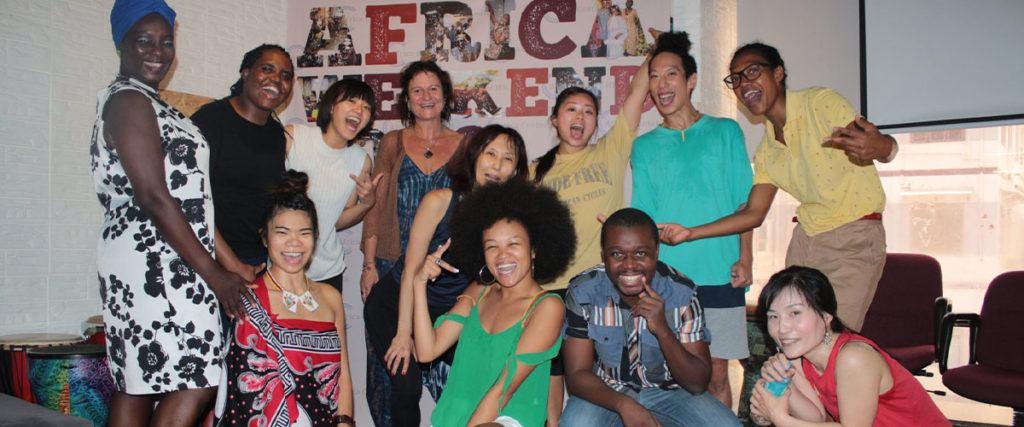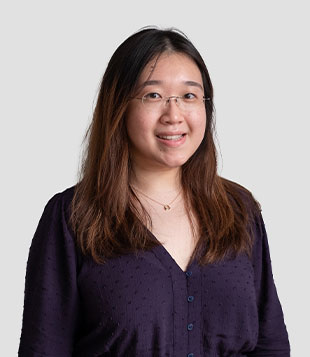Social enterprise Africa Center Hong Kong is rebranding blackness and bringing African perspectives to Hong Kong. We talk to co-founder Innocent Mutanga about the change that the city needs.
Sparked by George Floyd’s death, the 2020 #BlackLivesMatter protests have deeply challenged systemic inequalities, giving millions the power to voice the injustice they’ve endured. We have seen widespread protests disrupt the status quo across continents, with many in North America, Europe, and Asia standing in solidarity with the movement. Statues of colonial and racist figures such as Cecil Rhodes have been toppled, and corporates like Mars and Quaker Oats have even stepped up to reform their marketing strategies to be more inclusive.
Meanwhile, Hong Kong has seen a disappointingly lacklustre response to the #BlackLivesMatter movement. Enter social enterprise Africa Center, a platform with a mission to rebrand blackness. Founded in 2019 by Innocent Mutanga, Abdikafi Mohamud, and Patrick Ogwu, the platform is redirecting the conversation to shine light on African voices in Hong Kong. In order to do that, they’re organising events ranging from race relations talks to book clubs, movie screenings to networking lunches, and much more.
Here we speak with co-founder and CEO Innocent Mutanga to find out more about the biggest misconceptions Africans face in Hong Kong, the underlying racism that the city faces, and how the platform is employing education to radically change perspectives.
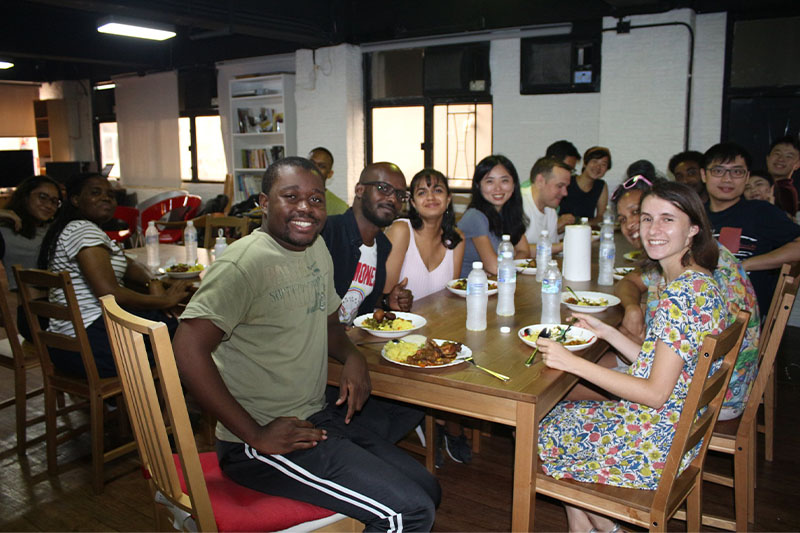
Tell me about Africa Center.
Africa Center is a platform and creative hub dedicated primarily to three things.
One is to rebrand blackness. Historically, Africans have been seen in a negative light – they’re always depicted as savages with brutal and dangerous instincts. This is wrong. It’s something that’s only been branded by colonialists as a way to justify the whole colonial project. Even currently, if you want to invest in Africa, the risk is priced very, very high, and this is usually based on the image that Africa is a dangerous place. Africa Center rebrands these stereotypical images and allows people to learn about Africa for what it is and Africans for who they are rather than what the Europeans or Americans have taught them.
The second part is to connect communities. This idea is something that has not been explored before – a platform that is uniquely African where you can connect with Africans and other people alike. Whether it be joining our book club, participating in our networking lunches, or taking part in a cooking workshop, this builds a connection between communities where people can share values and gain an African perspective.
The third part is to develop a consciousness among Africans – that is, for black people to see themselves in a positive light as people with agency who can bring about change and are not vulnerable victims.
What inspired you to found Africa Center?
There are two things that happened to me as an ‘aha moment’ of some sort. The first one is a book that I read called Things Fall Apart by Chinua Achebe. Reading the book was the first time I saw black people as human beings with agency, not just as people running around naked with flies all over their heads and begging for food. One of the things Achebe said in an interview was, “Until the lions have their own historians, the history of the hunt will always glorify the hunter.” For me, that was the moment I realised we needed to have something of our own.
The second part was me realising that we probably only have a 10-year window in this region to correct things. It’s no secret that there has been a shift in the global order where Asia is becoming more geopolitically, economically, and culturally significant. So, now is the moment for us Africans to jump in. We need to have a seat at the table, direct how this conversation goes, and set things right. It is important that people get to know what Africa is and who Africans are instead of Asians inputting stereotypes that have been informed by Western perspectives. If we don’t do that now, Africans are going to be looked down upon by Asians as well.
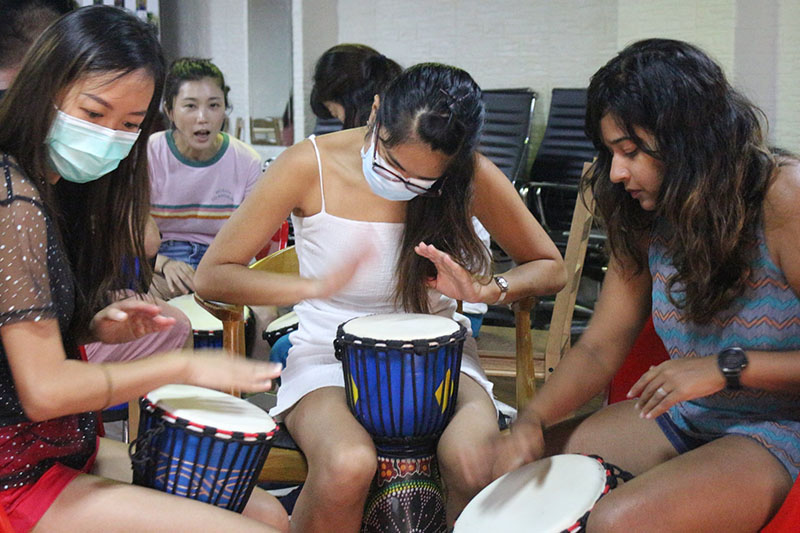
Africa Center focuses on illuminating African voices in Hong Kong. Why is this so important?
I think the African perspective is probably the most important but also the most undervalued perspective in the world right now. The fact that Africans have been ignored for such a long time means that they are able to see things in a very different and interesting way, and in some ways a more accurate way. In Hong Kong, when people think of philosophy, they think of Socrates, Plato, and Aristotle, and there’s also Confucious, Laozi, and Zhuangzi – and that’s about it. But these are only two perspectives, and they can’t answer the complex problems we have in the world right now.
Things have become so uncertain in Hong Kong, be it the coronavirus or changes with the national security law. Given the fact that Africans have dealt with uncertainty for such a long time, who else is better to be the advisor on navigating uncertain environments than Africans themselves? I’ve been saying again and again that Hong Kong people need to read the book Things Fall Apart because it is a template of what is happening in Hong Kong right now. They probably will not read it now, but they might read it 10 years later and realise, “Oh my god, if only we had learned about this.” Given the similar ideologies and histories that Hong Kong and Africa have, Hong Kongers should really relate more to the Africans than they relate to Westerners.
What problems are there with African representation in Hong Kong?
There is a problem of white supremacy. I cannot say it is direct anti-blackness, but I can confidently say there is a certain worship of white supremacy and upholding of white supremacist ideologies in Hong Kong. A lot of schools in Hong Kong would hire a white person over any other – not because a white person is of any more intrinsic value than others, but because they are white. In universities, they also think it’s appropriate to hire white men that have never set their foot in Africa to teach things related to Africans. Why is that even acceptable? Hong Kong has this ladder where whiteness is at the top. The darker you are, the lower the position you have. I’ve been in Hong Kong for seven years now, but this idea hasn’t changed at all over the years – there is zero consciousness. If it had changed, we would not be where we are today.
As for the Black Lives Matter movement, the only thing that it has done in Hong Kong is make some people disappointed and disillusioned about the idea of America being this glorious land of freedom. But has it made Hong Kong people question white supremacy? No, absolutely not. They are still embodying the same stereotypes. They really need to start facing the fact that their aspirations of whiteness and Westernness are misled.
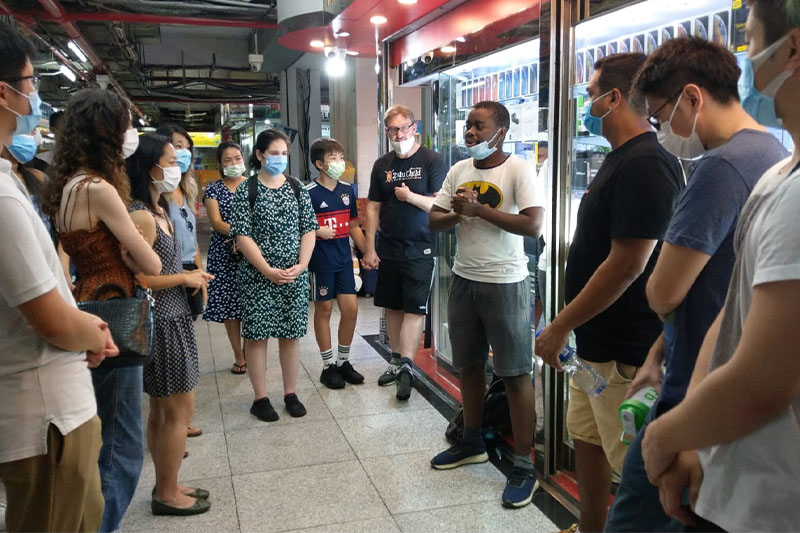
How have people reacted to Africa Center’s events? Are they open to learning about African perspectives?
For the race relations events held at our centre, the people who attend them tend to be of other nationalities or ethnicities – we actually have more Indians, Japanese, and Taiwanese than Hong Kong people coming. The Chinese people who come to our events are usually Chinese American or Chinese Canadian. This is really disappointing, I wish there could be more local Hong Kong people coming – those that don’t have a background overseas.
We have other outreach projects as well where we go to the people – we go to schools and hold events like drumming and dancing workshops, and go to corporations and organisations for talks. The audiences in these events are usually Hong Kong people. The difference is, though, many Hong Kong people don’t take the initiative to actually come out. We have to go to them, and the fact that the people in their own city have zero proactiveness to teach themselves is really disappointing. I think this is because Hong Kong people are insecure about themselves. Many of them have built this white supremacist framework in their minds, thinking they’re more superior than Africans, and to challenge this myth of the whole identity you created for yourself would be painful. American novelist James Baldwin would be able to explain this better than me and I believe his perspective as a black person is relevant to Hong Kong people now.
What are some of the biggest barriers to changing African representation in Hong Kong?
There’s only one barrier: NGOs. NGOs always use negative images of Africans for their marketing and fundraising campaigns – images of struggling Africans who can’t do anything for themselves. These images don’t help anyone except the NGOs to fill their pockets with money.
Traditionally, schools, universities, organisations, and the media have always gone through NGOs, and it’s only now that we have a centre where they can come to us directly and hear from us, so in a way, I am more optimistic. But there are still some with very strong relations with NGOs and continue to perpetuate these demeaning images of Africans.
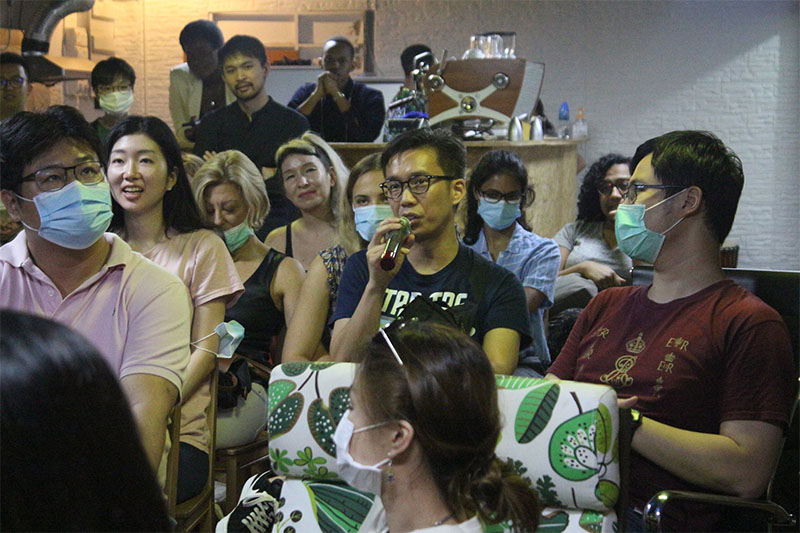
What needs to change?
The education system. Hong Kong needs to have a proper education system, not this colonial curriculum they have now. What kind of history starts by saying Hong Kong was a barren rock and fishing village until white men came to civilise it? That is not history; that is pure white supremacist propaganda! Also, if you look at Hong Kong’s curriculum, it teaches kids that the world is made up of Hong Kong, China, a bit of Asia, and Europe. Other parts of the world simply do not exist. The government, high schools and universities in Hong Kong need to make a conscious effort, create a Decolonising Curriculum Committee, and decolonise the curriculum.
On a micro-level, people in Hong Kong need to start taking the initiative to go out there and learn. Find more perspectives elsewhere, whether that is talking to your domestic helper at home or reading books written by African authors. Hong Kong is advantageous in the sense that there are all these resources and groups of people in Hong Kong. Leverage that, learn from them, and challenge yourself.
What is next for Africa Center?
There are three major directions we are going after.
One is facilitating conversations between the Africans and the Chinese. We have talks we’re doing on Africa-China relations, and doing that is going to position ourselves as a platform that can facilitate these conversations.
Second, we are working to put together an incubation and co-working space for African-led startups and other businesses that are participating in the African market. We have been looking into Hong Kong and Shenzhen, but we’re still working to see which location would work best strategically.
The third thing we’re doing is holding our first Africa education fair next year. We are partnering with some universities and boarding schools in Africa where parents can send their kids to. This is very uncommon and might be quite shocking to some parents, but we’re going to open this path.
Related Articles
Harmony Ilunga: The Woman Turning The Tide on Racism in HK
